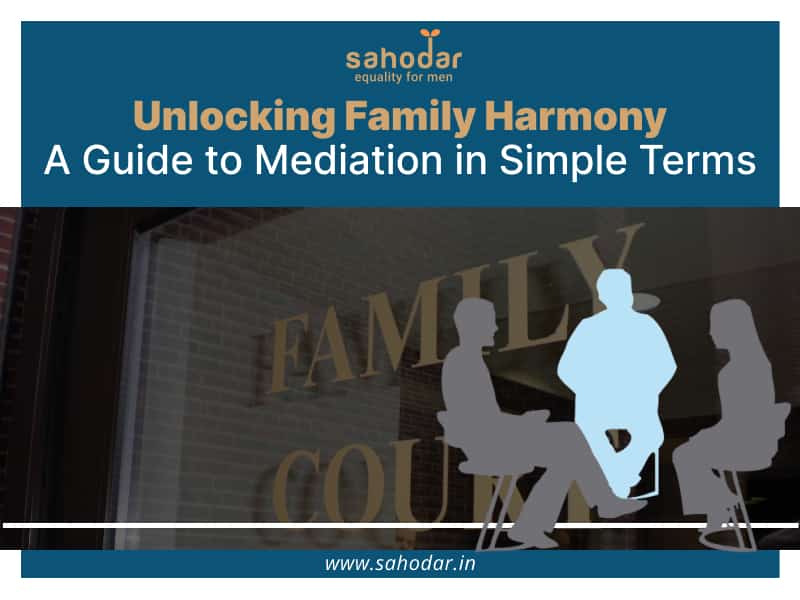Introduction
In family law, where emotions run high and complexities abound, mediation as a dispute resolution mechanism has reshaped the landscape of legal proceedings. This professional examination delves into the legal intricacies surrounding mediation in family court, dissecting its statutory foundation, procedural nuances, and the profound legal advantages that render it a formidable alternative to traditional litigation.
I. Statutory Basis and Legal Framework
- Empowering Courts to Promote Mediation: Legislative frameworks across jurisdictions grant family courts the authority to endorse and actively promote alternative dispute resolution methods. The legal mandate for courts to advocate mediation underscores the acknowledgement of its efficacy in fostering consensual settlements.
- Voluntariness and Informed Consent: At the crux of the legal framework governing mediation lies the principle of voluntariness. Parties engage in the mediation process of their own volition, and legal mechanisms ensure that informed consent, a critical component, is obtained, emphasising the paramount importance of parties comprehending the voluntary nature of their participation.
- Court Authorization and Recognition: Mediation often necessitates court authorisation or referral, and the legal system accords due recognition to mediated agreements. This recognition, subject to court approval, imparts a legal sanctity to negotiated resolutions, elevating their enforceability within the judicial framework.
II. Legal Advantages of Mediation in Family Law
- Preservation of Familial Relationships: Within the legal realm, mediation assumes significance by aligning with the best interests of the child standard embedded in family law statutes. It facilitates constructive communication as a legal mechanism for preserving co-parenting dynamics and minimising disruptions to familial bonds.
- Cost-Efficiency and Equitable Distribution: The legal advantage of cost-efficiency in mediation harmonises with principles of equitable distribution ingrained in family law. Mediation contributes to the just division of marital assets and financial resources by circumventing protracted legal proceedings and aligning with established legal norms.
- Empowerment and Autonomy: Legal principles of autonomy and self-determination constitute the foundation of mediation. Parties, empowered by these legal tenets, actively contribute to the negotiation process, aligning with broader legal principles emphasising the importance of parties having a meaningful say in resolving their disputes.
- Confidentiality and Legal Privilege: The legal doctrine of confidentiality in mediation, buttressed by principles of legal privilege, safeguards communications from disclosure in legal proceedings. This upholds the integrity of the process, fostering an environment conducive to open and candid dialogue.
- Timely Resolution and Judicial Efficiency: The legal imperative of timely resolution converges with broader principles of judicial efficiency. Courts grappling with burgeoning dockets endorse mediation to expedite the resolution of family disputes, upholding the foundational legal principle of justice without undue delay.
- Mitigation of Emotional Distress and Legal Ethics: The legal recognition of mitigating emotional distress aligns with ethical considerations within the legal profession. With its collaborative ethos, mediation seeks to minimise the emotional strain associated with adversarial litigation, aligning with established legal ethical standards.
III. Challenges and Legal Considerations
- Applicability of Mediation: Legal determinations regarding the suitability of mediation hinge on contextual factors. Instances involving domestic violence, power imbalances, or parties unwilling to negotiate in good faith may necessitate alternative legal strategies, requiring a reasonable examination of each case’s unique circumstances.
- Competency of Mediators: The legal competency of mediators is paramount. Mediators play a pivotal role in upholding the integrity of the process within the confines of legal norms by possessing a nuanced understanding of family law and procedural rules and adeptness in navigating complex familial dynamics.
Conclusion
In conclusion, the legal nuances surrounding mediation in family law render it a sophisticated and dynamic field. The statutory foundation, procedural intricacies, and legal advantages underscore its significance as a viable alternative to traditional litigation. As society increasingly recognises the efficacy of amicable resolutions in family matters, the role of mediation is poised to evolve, providing families with a legal avenue characterised by collaboration, autonomy, and equitable outcomes. A comprehensive understanding of these legal intricacies is imperative for legal practitioners, policymakers, and individuals navigating the complexities of family law.

